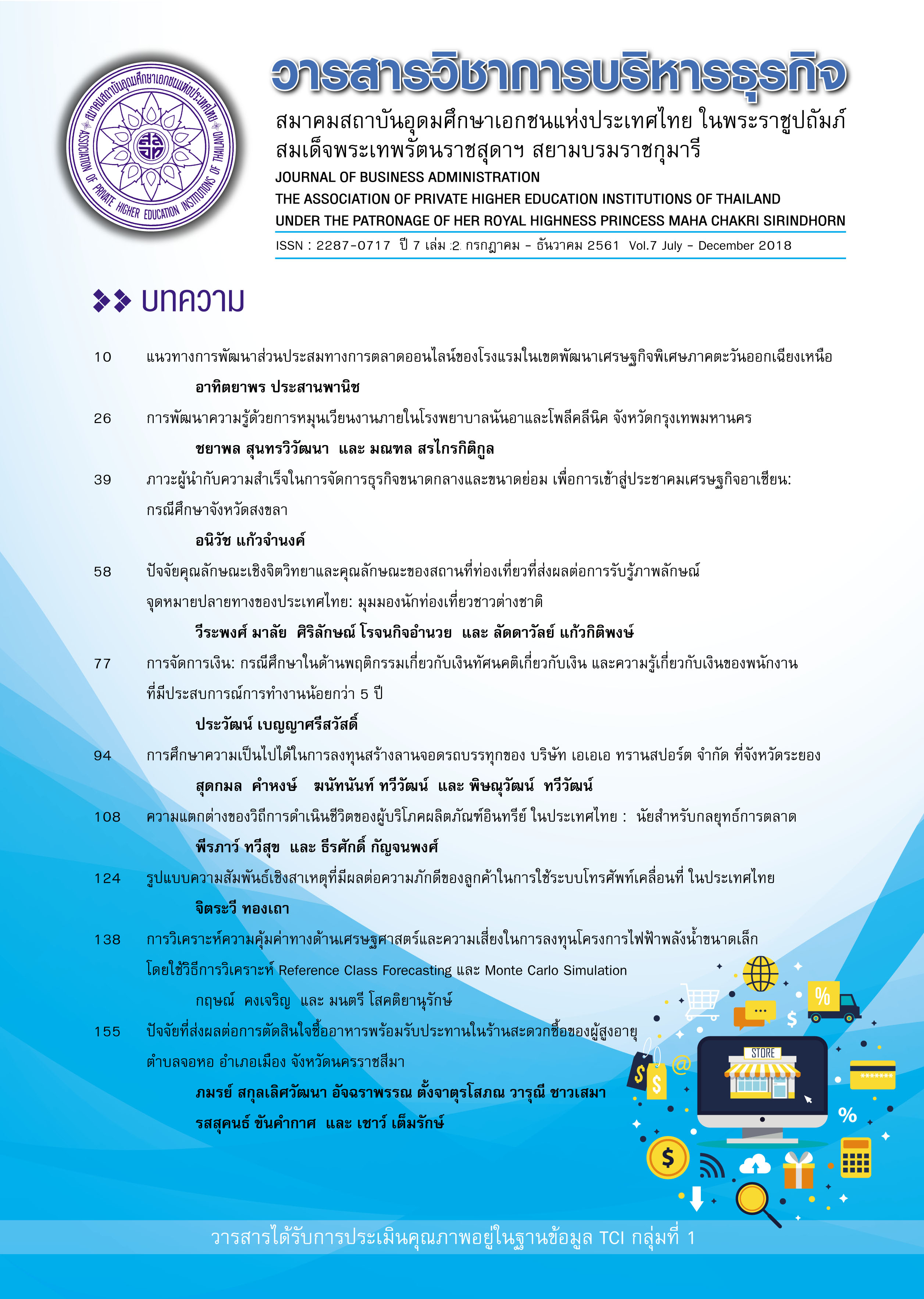KNOWLEDGE DEVELOPMENT BY JOB ROTATION IN NAN-AH POLYCLINIC, BANGKOK
Keywords:
Knowledge development, Knowledge development tool, Hospital, Job rotationAbstract
This qualitative case study research was undertaken to study knowledge development in
Nan-Ah Polyclinic Hospital and the result of the development, which lead to business success.
The study might be a role model of knowledge management in hospitality industry. Samples were
13 hospital employees from total 40 employees. They are 2 executives and 11 workers, including
public health officers, nurses, doctors, and specialists. Data were collected by semi structured
interview and data saturation was achieved.
Results showed that the key development tool was job rotation, which adapted from the
actual operation. Informal job rotation was done among nurses and it was done formally among
public health officers. Factors leading to job rotation included management style, job rotation
importance, satisfaction and organizational goals. Job rotation also helped employee development
as knowledge workers. External knowledge was also shared by temporary officers and part-time
specialists. These could lead to skill development and corporate success.

Downloads
Published
How to Cite
Issue
Section
License
บทความที่ลงตีพิมพ์ในวารสารวิชาการบริหารธุรกิจ สมาคมสถาบันอุดมศึกษาเอกชนแห่งประเทศไทยต้องเป็นบทความที่ไม่เคยได้รับการตีพิมพ์เผยแพร่ หรืออยู่ระหว่างการพิจารณาตีพิมพ์ในวารสารอื่นๆ การละเมิดลิขสิทธิ์เป็นความรับผิดชอบของผู้ส่งบทความโดยตรง

